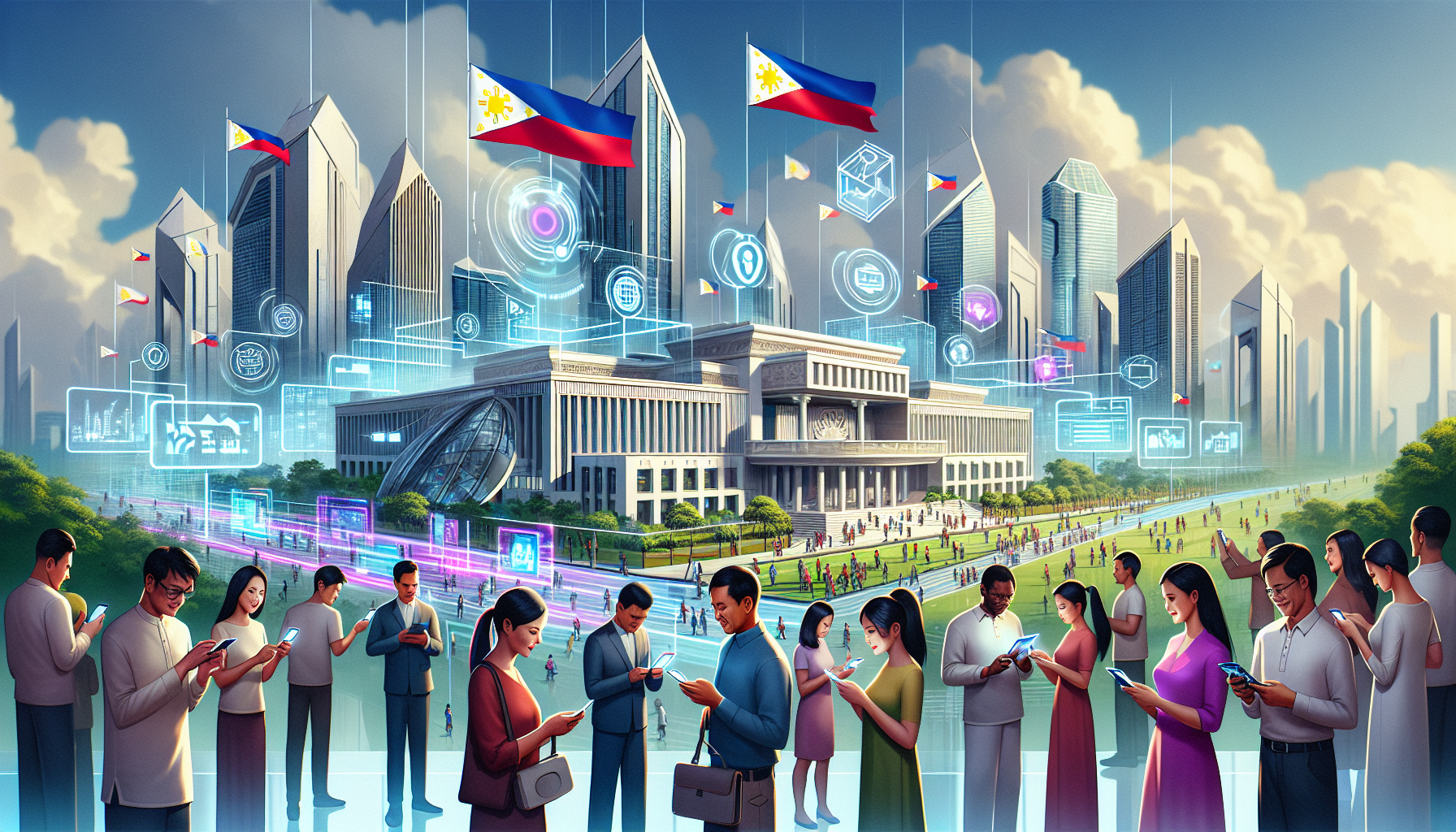
tl;dr
The Philippines enacts Republic Act No. 12254, the E-Governance Act, to revolutionize government services through digital transformation, prioritizing transparency, security, and citizen-centric innovation.
**Philippines Embarks on Digital Governance Revolution with Landmark E-Governance Act**
In a bold move to modernize government operations and empower citizens, Philippine President Ferdinand Marcos Jr. signed Republic Act No. 12254, the E-Governance Act, on September 5. This landmark legislation is set to transform how the government delivers services, blending technology with public administration to create a more transparent, efficient, and citizen-centric system.
**A Digital Vision for Nation-Building**
Marcos underscored the law’s role in advancing “responsive and transparent governance” during his State of the Nation Address, framing digital transformation as a cornerstone of national development. The E-Governance Act mandates a “regulated, secure, and robust information and communication system” to streamline services for Filipinos, from accessing government documents to engaging with public programs.
The law applies to all branches of government, including local agencies, state universities, and even overseas offices, ensuring a unified approach. Crucially, it preserves the autonomy of government entities while pushing for integration. As Marcos stated, the goal is to “bring services closer to citizens through technology,” a promise now codified into law.
**DICT: The Architect of Digital Change**
The Department of Information and Communications Technology (DICT) is at the heart of this transformation. Designated as the lead agency, the DICT will oversee ICT projects across the country, aligning them with the National ICT Development Agenda and the E-Government Master Plan.
The law also establishes a **Unified E-Gov Project Management Office (EGov UPMO)** within a year, tasked with managing ICT projects in line with international standards. This office, led by the DICT Undersecretary for E-Government, will ensure consistency and efficiency in digital initiatives.
**Privacy, Security, and Innovation**
A key priority is safeguarding citizens’ data. The E-Governance Act requires the DICT to conduct Privacy Impact Assessments for systems handling personal information, adhering to guidelines from the National Privacy Commission. It also mandates minimum security standards for government ICT systems, ensuring resilience against cyber threats.
Beyond protection, the law fosters innovation. The DICT is instructed to promote start-ups, adopt emerging technologies, and create a framework for digital literacy. A reorganized ICT Literacy and Competency Development Bureau, alongside the newly established ICT Academy for E-Governance, will equip citizens with the skills needed to thrive in a digital era.
**Partnerships for Inclusive Access**
The law opens doors for public-private collaboration, allowing government agencies to partner with telecom companies and internet service providers (ISPs) to expand connectivity—especially in underserved areas. This provision aims to bridge the digital divide, with free public internet access programs leveraging the Free Public Internet Access Fund to support digital learning and civic engagement.
**A Blueprint for the Future**
The E-Governance Act also mandates the creation of an **E-Government Master Plan (EGMP)**, a dynamic roadmap for digital transformation. This plan will guide initiatives like the Philippine Digital Health System, the Online Public Service Portal, and the eLGU System, which local governments must adopt or customize.
**What’s Next?**
The law takes effect 15 days after its publication, marking the beginning of a new chapter for Philippine governance. As DICT Secretary Henry Aguda noted, this is not just a reform but “a promise fulfilled.” The success of RA 12254 will depend on seamless implementation, public trust in digital systems, and ongoing adaptation to evolving technologies.
For Filipinos, the E-Governance Act represents a leap toward a future where government is not just efficient but accessible, secure, and responsive. As the nation navigates this digital frontier, one question remains: Will this transformation truly leave no one behind?